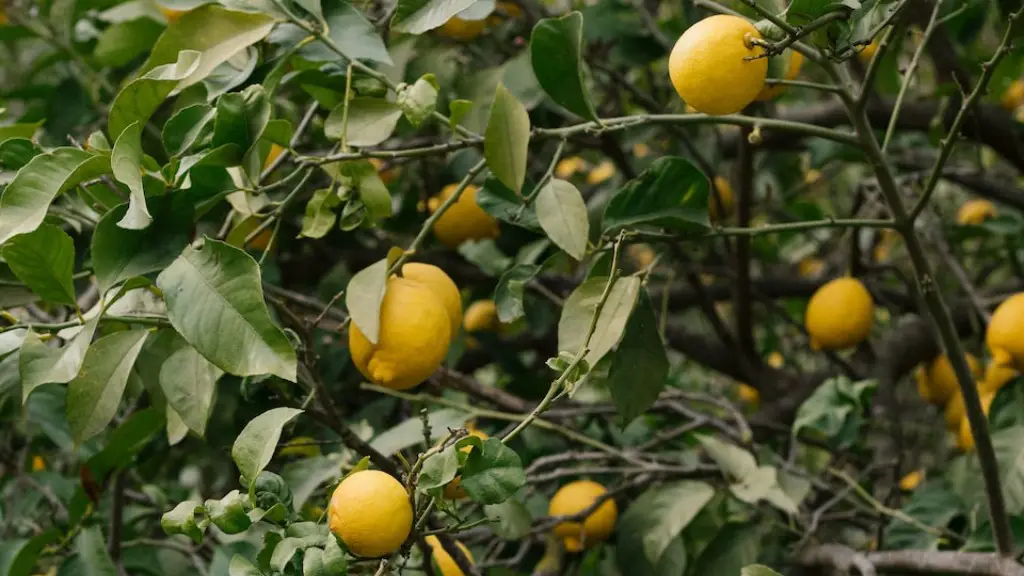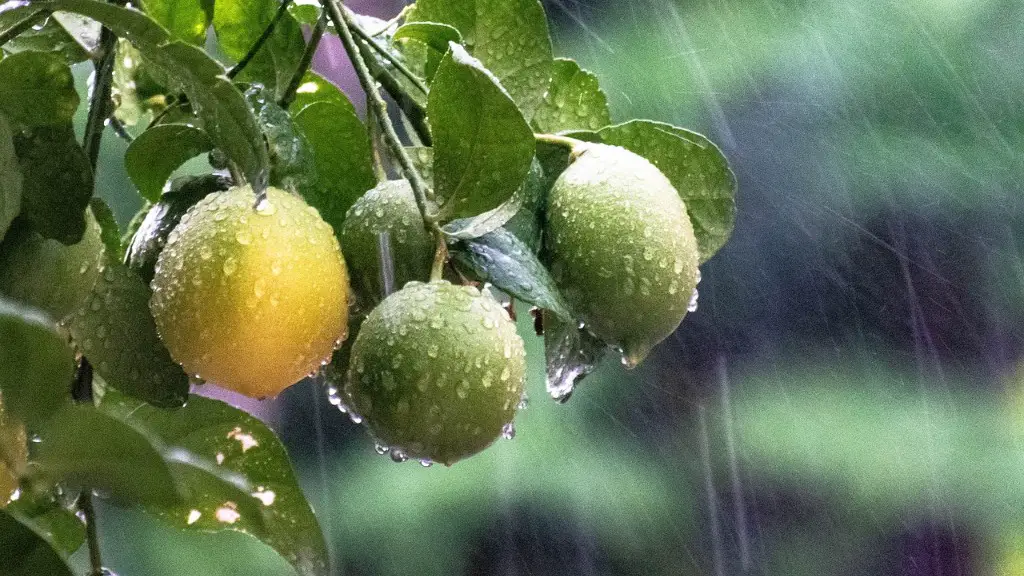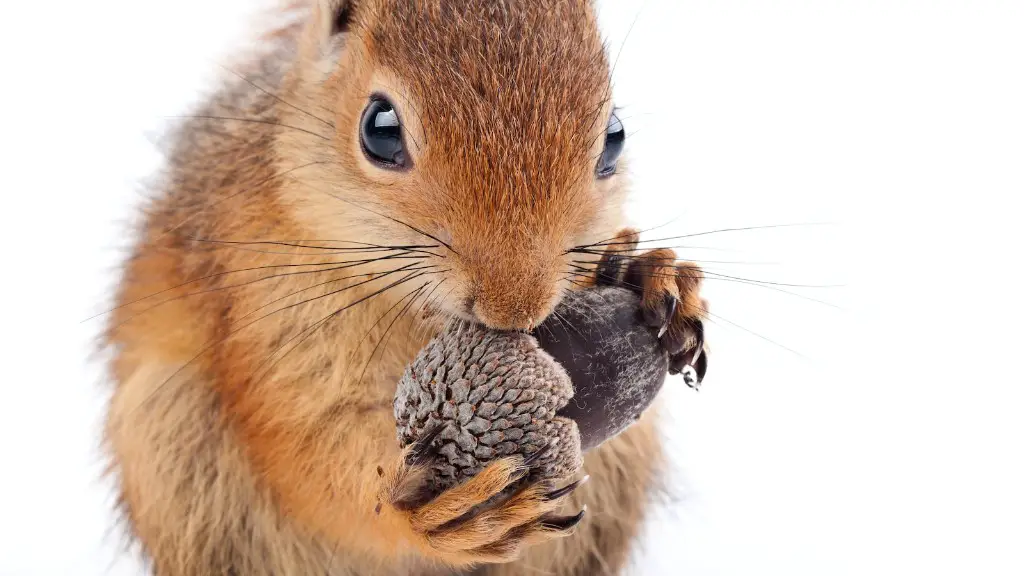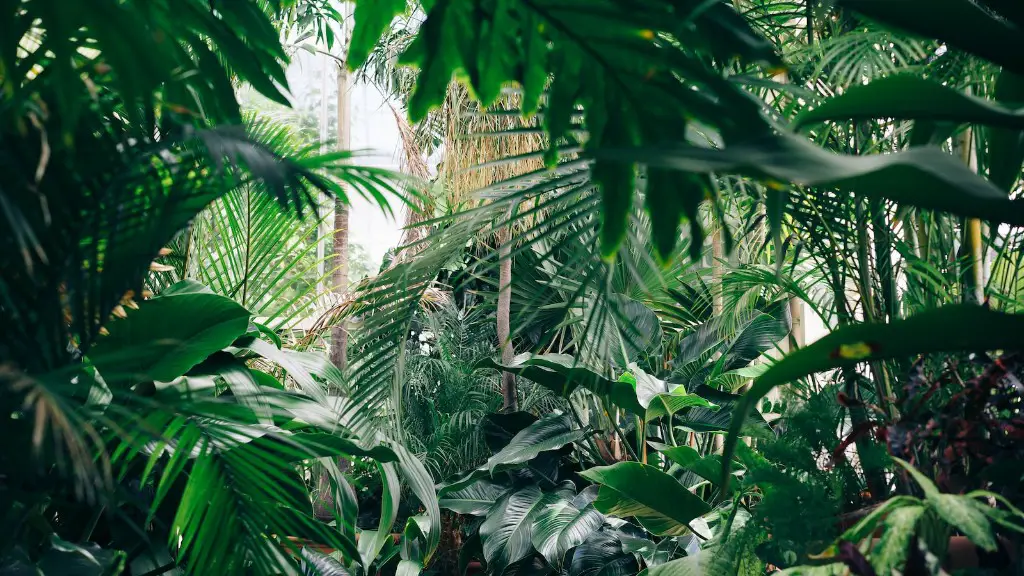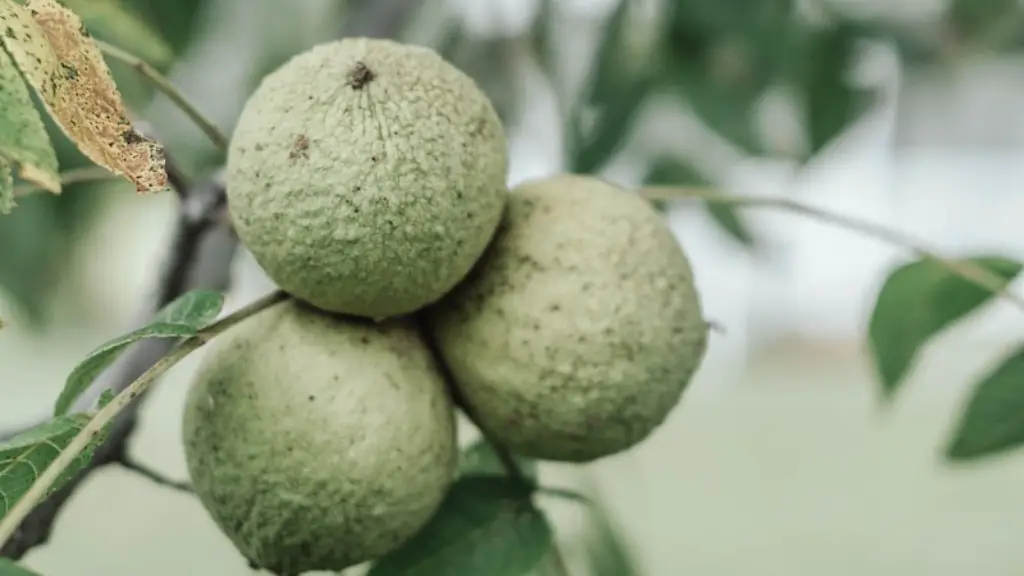One of the most frustrating experiences for any homeowner is dealing with a dying Meyer lemon tree. Luckily, understanding why your Meyer lemon tree is dying and implementing the right measures to prevent it can help you have a healthy, fruitful tree. Here are some of the most common reasons that Meyer lemon trees may be dying and what can be done to help bring them back to health.
Firstly, inadequate sunlight is a common cause of Meyer lemon tree dying. To ensure that your tree is getting enough sunlight, you should try to place it so that it is getting about six hours of direct sun every day. If you cannot do this, you may need to supplement the tree’s natural sunlight with additional lighting.
Another common cause of poor health in Meyer lemon trees is incorrect watering. Meyer lemon trees need to be watered regularly, but never in excess. An over-watered Meyer lemon tree can cause root rot, which can quickly kill the tree. It’s important to only water the tree when you can see that the soil is completely dry, as this will reduce the risk of root rot.
Incorrect pruning practices can also be a major cause of poor Meyer lemon tree health. Pruning must be done correctly or it can lead to damage to the tree and make it more susceptible to disease and insect infestations. When pruning your Meyer lemon tree, make sure to use sharp, clean pruning shears and only prune the tree when necessary.
Finally, disease and insect infestations can also be a major factor in why your Meyer lemon tree is dying. Common diseases affecting Meyer lemon trees include citrus canker, citrus greening and citrus blight. To prevent disease and insect infestations from taking over your tree, spray it regularly with an insecticide and fungicide. Also, be sure to check your Meyer lemon tree periodically for signs of disease or insect infestations so that you can take action quickly.
Nutrition Deficiency
Inadequate nutrition is another frequent cause of poor Meyer lemon tree health. Meyer lemon trees require adequate amounts of fertilizer to maintain their nutrition levels and health. Make sure to fertilize your Meyer lemon tree with a balanced citrus fertilizer, as this will ensure that it is receiving the proper amounts of essential nutrients. Additionally, you should regularly assess the soil surrounding your tree and make sure that it is not being depleted of essential nutrients.
It is also important to be aware of any nutrient deficiencies that may exist in the soil around your Meyer lemon tree. Inadequate levels of certain essential nutrients, such as nitrogen and potassium, can lead to slow growth, stunted leaves and yellowing of the foliage. If you suspect a nutrient deficiency, you should have the soil tested to make sure that the tree is getting the proper nutrition it needs.
Furthermore, improper soil pH is another common reason Meyer lemon trees are dying. Meyer lemon trees prefer a soil pH of 6.0 to 8.0. If the pH of the soil around your tree is outside this range, it can lead to nutrient deficiencies and even the death of your tree. To ensure that your Meyer lemon tree has adequate soil pH, you should have the soil tested and, if necessary, make use of soil amendments or soil acidifiers.
Finally, poor root health is a frequent contributor to poor Meyer lemon tree health. Root rot can quickly kill a Meyer lemon tree, so it is important to inspect the roots of your tree regularly to make sure they are strong and healthy. Additionally, you should avoid planting your Meyer lemon tree too deeply, as this can lead to root suffocation and eventual tree death.
Pests
Pests can also be a major factor in why your Meyer lemon tree is dying. Common pests that can infect Meyer lemon trees include scale insects, mealybugs, aphids, and mites. These pests can quickly weaken a tree, making it more susceptible to disease and other health issues. To prevent pest infestations, you should spray your Meyer lemon tree regularly with an insecticide. Additionally, you should inspect your tree for signs of infestation and take action quickly if you do see signs of pest infestation.
It is also important to keep your Meyer lemon tree free of weeds. Weeds can compete with your Meyer lemon tree for nutrients and water, which can cause the tree to become weaker and more susceptible to disease. To prevent this, you should keep your Meyer lemon tree area free of weeds and make sure to water and fertilize your tree regularly.
Furthermore, overwintering can also be a major contributor to poor Meyer lemon tree health. If your tree is not suitable for overwintering, then you should protect it from harsh weather, such as heavy winds, cold temperatures, and excessive moisture. Covering the tree with a tarp and providing adequate shelter can help prevent damage from weather. Also, make sure to check the tree periodically for any signs of damage or disease.
Finally, disease and insect infestations can also be a major factor in why your Meyer lemon tree is dying. Common diseases affecting Meyer lemon trees include citrus canker, citrus greening, and citrus blight. To prevent disease and insect infestations from taking over your tree, spray it regularly with an insecticide and fungicide. Additionally, be sure to check your Meyer lemon tree periodically for signs of disease or insect infestations, and take action quickly if you do see any.
Environmental Stress
Environmental stresses can also cause your Meyer lemon tree to die. For example, excessive moisture can lead to root rot, which can be deadly for a Meyer lemon tree. Additionally, extreme heat can also cause damage to the tree, leading to yellowing leaves and leaf drop. To protect your Meyer lemon tree from environmental stresses, you should ensure that it is getting adequate sunlight, water, and fertilizer and that the soil around it has proper drainage.
It is also important to be aware of other environmental stresses, such as wind, cold temperatures, and frost. Wind can be especially damaging to Meyer lemon trees as it can cause broken branches. Cold temperatures can also cause injury to the tree, and frost can cause the tree to become dehydrated and die. To protect your Meyer lemon tree from these environmental stresses, you should use windbreaks, frost cloths, and other appropriate protection.
Finally, air pollution and heavy metal contamination can also be major factors that contribute to a Meyer lemon tree dying. Air pollution can damage the leaves of the tree, making it prone to disease. Heavy metal contamination can also damage the tree and make it weaker, making it more susceptible to disease. To prevent these risks, you should ensure that your tree is not exposed to heavy metal contamination or air pollution.
Improper Planting
Incorrect planting is another common reason Meyer lemon trees are dying. When planting a Meyer lemon tree, it is important that it is planted in well-draining soil. Planting in soil that retains too much water can lead to root rot, which can quickly kill a tree. Additionally, make sure to plant your Meyer lemon tree in a spot that is not exposed to excessive wind or heavy metal contamination.
Furthermore, overcrowding can also be an issue. If your Meyer lemon tree is overcrowded, it can inhibit its growth and lead to poor health. To prevent overcrowding, you should make sure to space your trees according to their specific requirements. Additionally, you should trim and prune your trees regularly to keep them healthy and growing well.
Soil compaction is another issue that can cause Meyer lemon trees to die. Soil compaction is caused by heavy machinery or people walking on the soil around the tree. Soil compaction prevents adequate water, oxygen, and nutrient uptake, all of which are essential for Meyer lemon trees. To prevent soil compaction, you should make sure to mulch the area properly, avoid walking or driving on the soil, and use high-quality soil.
Finally, incorrect pruning can also be a major issue. Incorrect pruning can cause damage to the tree, making it more vulnerable to disease and other health issues. To prune your Meyer lemon tree correctly, you should use sharp, clean pruning shears and only prune the tree when necessary. Additionally, it is important to not prune too much as this can weaken the tree and make it more susceptible to disease.
